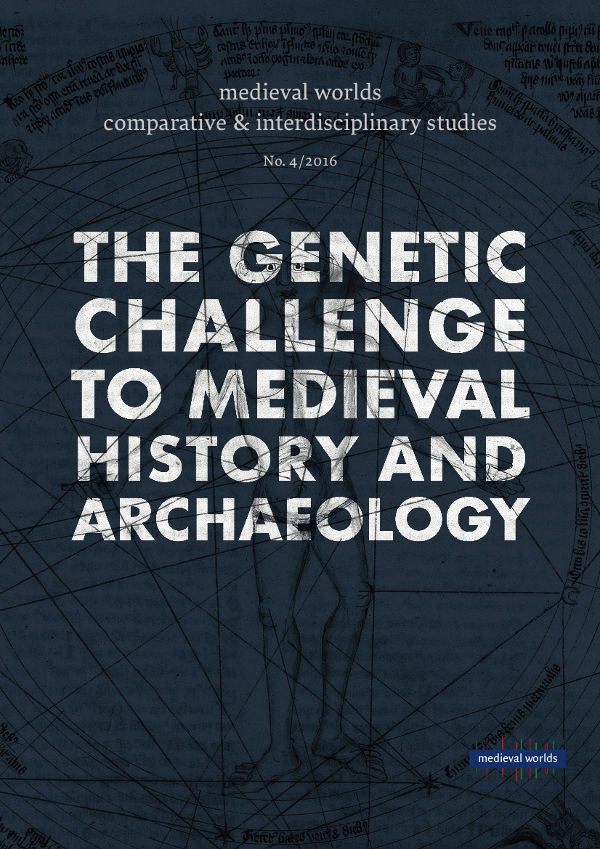|
 |
MEDIEVAL WORLDS provides a new forum for interdisciplinary and transcultural studies of the Middle Ages. Specifically it encourages and links comparative research between different regions and fields and promotes methodological innovation in transdisciplinary studies. Focusing on the Middle Ages (c. 400-1500 CE, but can be extended whenever thematically fruitful or appropriate), MEDIEVAL WORLDS takes a global approach to studying history in a comparative setting.
MEDIEVAL WORLDS is open to regular submissions on comparative topics, but also offers the possibility to propose or advertise subjects that lend themselves to comparison. With a view to connecting people working on related topics in different academic environments, we publish calls for matching articles and for contributions on particular issues.
Table of Contents
Walter POHL, Editor’s Introduction
Stefanie SAMIDA - Jörg FEUCHTER, Why Archaeologists, Historians and Geneticists Should Work Together – and How
Sebastian BRATHER, New Questions Instead of Old Answers: Archaeological Expectations of a DNA Analysis
Stefan BURMEISTER, Archaeological Research on Migration as a Multidisciplinary Challenge
Patrick GEARY - Krishna VEERAMAH, Mapping European Population Movement through Genomic Research
Manfred K. H. EGGERT, Genetizing Bantu: Historical Insight or Historical Trilemma?
Kerstin P. HOFMANN, With víkingr into the Identity Trap: When Historiographical Actors Get a Life of Their Own
Celine WAWRUSCHKA, Genetic History and Identity: The Case of Turkey
The journal is funded by the Austrian Science Fund (FWF).

|





 Home
Home Print
Print
 References
References
 Share
Share
